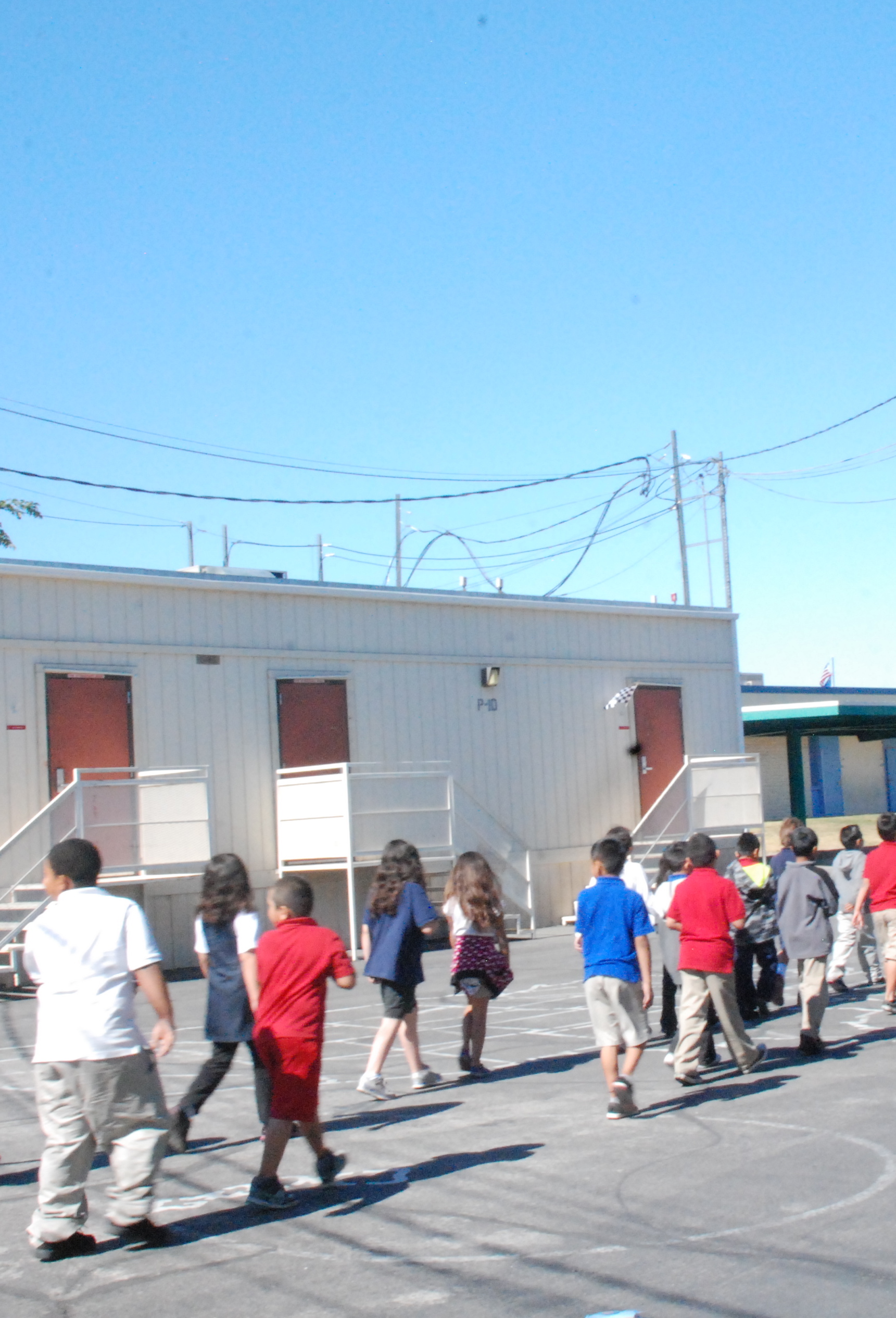
In the 1970s there were several schools built in Las Vegas with windowless classrooms. At the time there were several rational performance-based arguments for not placing windows in classrooms. These decisions were justified with data collected using advanced technology, scientific studies and research. One justification for removing windows was based on sophisticated energy modeling that accurately projected energy savings, which translated into significant monetary savings for the district and taxpayers as well as the ecological benefits of reduced consumption. Another justification was supported by behavioral research that suggested removing windows would reduce student distractions and thereby improve learning outcomes. It is interesting to note that these findings have been challenged by more recent studies that claim standardized test scores improve when classrooms have windows. Yet another justification for removing the windows was increased school safety by creating fewer opportunities for people to enter and exit the building. Fewer windows also made it more difficult for criminals, vandals and thieves to gain access to school grounds.
Despite these compelling performance-based arguments and supporting data, several outspoken critics correctly pointed out that these new schools resembled prisons. We all want to use the best information available to construct buildings that are safe and perform, but the questions that must be asked are these: Who after thoughtful consideration would ever consider putting children ages 5–18 in an environment with no windows for 6–8 hours a day? And what well-considered decision-making process concludes that a windowless classroom is an appropriate space in which to nurture and teach the next generation about the world they live in? Unfortunately, these types of decisions are made regularly by well meaning but misguided technocrats pointing to the latest study or scientific data. It is easy to get caught up in a cultural milieu that favors science over other modes of inquiry and knowledge. Science and the scientific method are wonderful tools that deepen our understandings of the world, but they can’t explain or prioritize the human experience.
When individuals start believing that science and the scientific method are the exclusive or only legitimate means to obtain knowledge, the scientific method ceases to be a valuable intellectual tool and becomes a deeply flawed belief system. Some refer to this blind and singular faith as Scientism. I don’t want to get into a full-blown examination of Scientism here, but it is based on several presuppositions that can’t be proven by science or the scientific method. For example, one must believe in the dependability and consistency of the human sensory experience, which is used to gather and process scientific data.
One must also assume that the thing being studied operates in a regular, consistent fashion in order to trust the results of any scientific experiment. Neither of these presuppositions have or can be proven by Scientism’s only accepted mode of obtaining truth, namely the scientific method. Therefore, the presuppositions upon which Scientism are based must be taken on faith rather than scientific proof.
As blind faith in science continues to sway our society, we weaken the connection to our humanity and the valuable role that other modes of inquiry play in the pursuit of knowledge. There is no doubt that science provides increased understanding of the world we live in and technology is presenting humanity with unprecedented tools, but neither can tell us how best to use those understandings and tools. Scientific inquiry has limitations and other modes of inquiry must inform how we utilize this unprecedented power and opportunity. My guess is that science and technology are favored in society today, not because they are more true or reliable, but because they are easier to monetize and sell to a skeptical public. In terms of generating knowledge other modes of inquiry, such as the arts, are not insignificant or less important than science. In many ways they form the tip of the spear. Art should be held up as an invaluable exploration into the human condition and an increasingly important form of knowledge — a knowledge that should help us govern and regulate the utilization of science and technology. The tale and image shared here should be a stark reminder of what happens when we disregard the arts.
